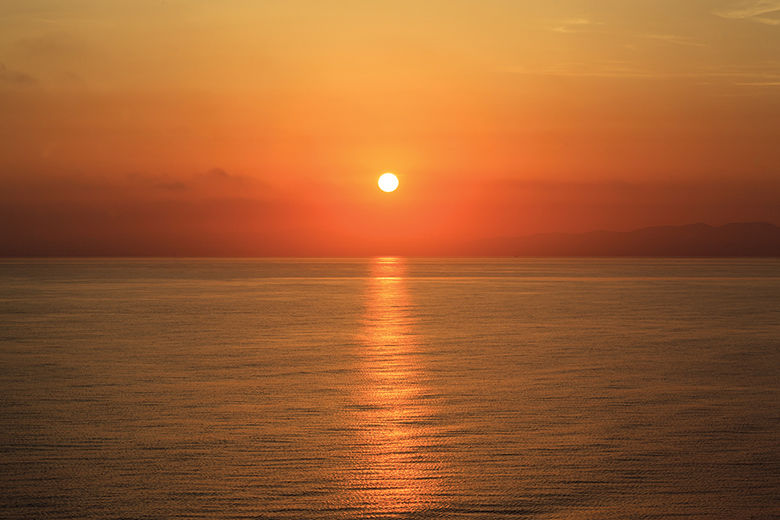On the Feast of the Transfiguration in 1923, Pierre Teilhard de Chardin found himself alone at sunrise in the Ordos desert in China, watching the sun spread its orange and red light across the horizon. He was deeply moved, humanly and religiously.
What he most wanted to do in response was to celebrate Mass, to somehow consecrate the whole world to God. But he had no altar, no bread and no wine.
So he resolved to make the world itself his altar and what was happening in the world the bread and the wine for his Mass. Here, in paraphrase, is the prayer he prayed over the world, awakening to the sun that morning in China:
O God, since I have neither bread, nor wine, nor altar, I will raise myself beyond these symbols and make the whole earth my altar and on it will offer to you all the labors and sufferings of the world.
As the rising sun moves as a sheet of fire across the horizon the earth wakes, trembles and begins its daily tasks. I will place on my paten, O God, the harvest to be won by this renewal of labor. Into my chalice I will pour all the sap which is to be pressed out this day from the earth’s fruits. My paten and my chalice are the depths of a soul laid widely open to all the forces which in a moment will rise up from every corner of the earth and converge upon the Spirit.
Grant me, Lord, to remember and make mystically present all those whom the light is now awakening to this new day. As I call these to mind, I remember first those who have shared life with me: family, community, friends, and colleagues. And I remember as well, more vaguely but all-inclusively, the whole of humanity, living and dead, and, not least, the physical earth itself, as I stand before you, O God, as a piece of this earth, as that place where the earth opens and closes to you.
And so, O God, over every living thing which is to spring up, to grow, to flower, to ripen during this day, I say again the words: “This is my body.” And over every death-force which waits in readiness to corrode, to wither, to cut down, I speak again your words which express the supreme mystery of faith: “This is my blood.” On my paten, I hold all who will live this day in vitality, the young, the strong, the healthy, the joy-filled; and in my chalice, I hold all that will be crushed and broken today as that vitality draws its life. I offer you on this all-embracing altar everything that is in our world, everything that is rising and everything that is dying and ask you to bless it.
And our communion with you will not be complete, will not be Christian, if, together with the gains which this new day brings, we do not also accept, in our own name and in the name of the world, those processes, hidden or manifest, of enfeeblement, of aging and of death, which unceasingly consume the universe, to its salvation or its condemnation. Lord God, we deliver ourselves up with abandon to those fearful forces of dissolution which, we blindly believe, will cause our narrow egos to be replaced by your divine presence. We gather into a single prayer both our delight in what we have and our thirst for what we lack.
Lord, lock us into the deepest depths of your heart; and then, holding us there, burn us, purify us, set us on fire, sublimate us, till we become utterly what you would have us to be, through the annihilation of all selfishness inside us. Amen.
For Teilhard this, of course, was not to be confused with the celebration of the Eucharist in a church — rather he saw it as a “prolongation” or “extension” of the Eucharist, where the body and blood of Christ becomes incarnate in a wider bread and wine, namely, in the entire physical world which manifests the mystery of God’s flesh shining through all that is.
Teilhard was an ordained Roman Catholic priest, covenanted by his ordination to celebrate Mass for the world, to place bread on a paten and wine in a chalice and offer them to God for the world. We too, all of us Christians, by our baptism, are made priests and, like Teilhard, are covenanted to say Mass for the world, that is, to offer up on our own metaphorical patens and chalices, bread and wine for the world, in whatever form this might take on a given day.
There are many ways of doing this, but you might want to try this: Some morning as the sun is lighting up the horizon, let its red and golden fire enflame your heart and your empathy so as to make you stretch out your hands and pray Teilhard’s eucharistic prayer over an awakening world.

